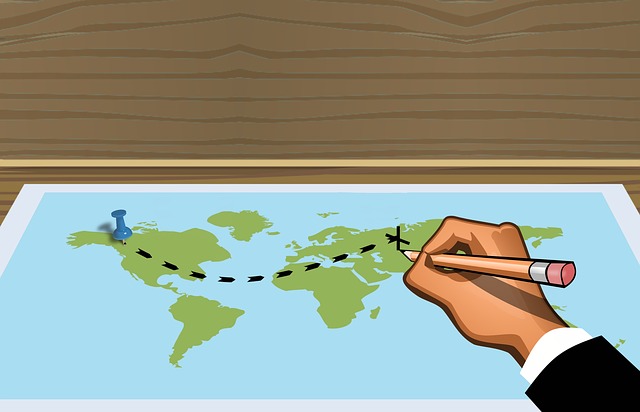Norton Juster is an American author who was born on the 2nd of June 1929, thereby making today his 90th birthday! New York born and bred, he came from a family of architects and practiced architecture himself for many years after serving in the U.S. Navy during his late twenties. He is best known for his children’s books, especially the timeless classic which kicked off his writing career in 1961: The Phantom Tollbooth.
Despite being a children’s story, I haven’t read this book until the age of 29, when I came across a copy in a second-hand bookshop and bought it for a mere R10. It goes without saying that I instantly fell in love with this imaginative adventure of truths, puns, charming nonsense and flagrant logic.

The Phantom Tollbooth is about a boy named Milo who, is bored and listless and has lost interest in seemingly everything. Fortunately, a strange unexpected package comes to his rescue and whisks him away into a peculiar fantasy world. This book has been likened to L. Frank Baum’s The Wonderful Wizard of Oz and Lewis Carroll’s Alice’s Adventures in Wonderland. It delightfully manages to demonstrate profound logic in a world of fantasy and imagination. It was illustrated by Juster’s good friend, Jules Feiffer, who also happened to turn ninety this year on the 26th of January!

A good dose of imagination and logic can come in surprisingly handy at times, so I am sharing a few nuggets of wisdom from The Phantom Tollbooth in today’s post.
1 Using the power of thought can achieve more than we realise.
In Juster’s story, Milo ends up in the Doldrums where nothing is happening, because he stopped thinking. Although thinking did not get him all the way where he wanted to go, it was the power that got him moving again and out of the Doldrums.
“… Milo continued to think of all sorts of things; of the many detours and wrong turns that were so easy to take, of how fine it was to be moving along, and, most of all, how much could be accomplished with just a little thought.”
2 Time is valuable.
If you think of time, measured in terms of hours and minutes and seconds, it sure seems like we have a lot of it. But that does not diminish its worth or the speed at which it flies by!
“Then we were given the job of seeing that no one wasted time again … It’s hard work but a noble calling. For you see … it is our most valuable possession, more precious than diamonds. It marches on, it and tide wait for no man …”

3 Ask “why not?” more often.
We are usually taught that we should always have a reason for doing something, and that is not bad advice at all. But, what if you never explore new things or follow your intuition simply because you could not yet come up with a good enough reason to do so? Well, if you cannot come up with a “why” see if you can come up with a “why not?” and, if not , you have no reason not to! Simple!
“You can’t get in without a reason … wait a minute, maybe I have an old one you can use … ‘WHY NOT?’ That’s a good reason for almost anything – a bit used perhaps, but still quite serviceable.”
4 Use your words carefully.
In Afrikaans we have the saying: tel jou woorde (count your words) which means to weigh your words carefully before use. This truth is delightfully illustrated in Juster’s story as we see how being stingy with one’s words as well as squandering’s one’s words can both have harmful consequences.
“…people use as many words as they can and think themselves very wise for doing so. For always remember that while it is wrong to use too few, it is often far worse to use too many.”
“‘I didn’t know that I was going to have to eat my words,’ objected Milo. ‘Of course, of course, everyone here does,’ the king grunted. ‘You should have made a tastier speech.'”
5 Perspective can greatly affect what you see and understand.
Perspective from which you see something greatly influences what it will mean to you or how you will interpret it. It is useful to remember this when you realise your perspective is never the only perspective!
“For instance, from here that looks like a bucket of water, but from an ant’s point of view it’s a vast ocean, from an elephant’s just a cool drink, and to a fish of course, it’s home. So, you see, the way you see things depends a great deal on where you look at them from.”

6 Sometimes, it is okay to make mistakes.
Mistakes should not be made deliberately or out of carelessness, but if you’ve tried to do things right and still made a mistake, that is okay. Chances are, you have also learned something useful from the experience.
“You must never feel badly about making mistakes … as long as you take the time to learn from them. For you often learn more by being wrong for the right reasons than you do by being right for the wrong reasons.”
7 You can usually achieve something if you do not doubt that you can.
This life lesson might sound somewhat hackneyed, but still rings as true as ever. Very often we do not achieve something, simply because doubt distorts the focus and continuity needed to do so and not at all because we did not have the ability to achieve it.
“… what you can do is often simply a matter of what you will do … so many things are possible as long as you don’t know they’re impossible.”

8 Using your imagination and being realistic should be maintained in a balance.
Imagination is a great tool that will keep your heart smiling and your mind receptive. However, do not confuse this with going through life with eyes closed. Be aware of what is happening in your life, whether bad or good.
“… it’s just as bad to live in a place where what you do see isn’t there as it is to live in one where what you don’t see, is.”
9 Value the journey in between-destinations.
We often think the only purpose of traveling is to get somewhere. But it is the “getting there” that gives us experience, teaches us life lessons and makes us who we are when we arrive at the destination.
“… the most important reason for going from one place to another is to see what’s in between …”

If you want to hear Norton Juster tell the story of how he came to write The Phantom Tollbooth, listen to his short talk given on National Public Radio here.

A very happy 90th birthday to Norton Juster!
Movie in the making?
Although an animated film has been made of The Phantom Tollbooth in 1970, talk started in 2010 about making a live-action movie. Since then, production and script writing plans have been passed around repeatedly until October of 2018, when Carlos Saldanha has been announced as director and Donald De Line and Ed McDonnell as producers. Does this mean a movie is finally on the way? We will just have to wait and see! 1, 2
1. https://www.firstshowing.net/2010/gary-ross-bringing-phantom-tollbooth-back-to-the-big-screen/
2. http://collider.com/phantom-tollbooth-movie-director-carlos-saldanha/

